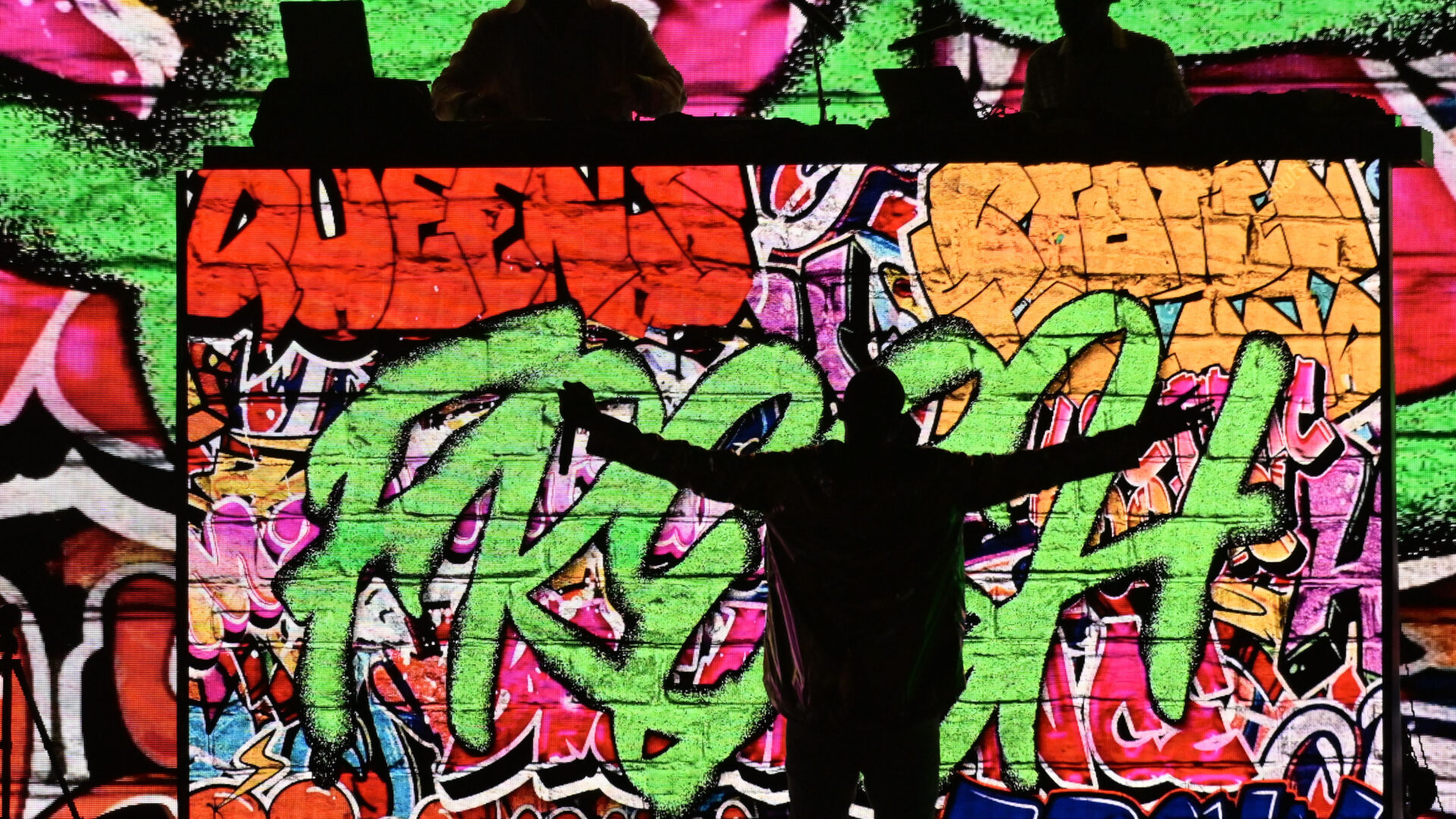
50 years ago today, a woman from the Bronx hosted a party and asked her brother to DJ. The – now founder of hip-hop, DJ Kool Herc, looped the “most danceable sections” of songs, creating a fresh sound that party-goers couldn’t get enough of. From then on, DJs put their spin on the flow that Herc created, and the sound lit up the country. Music enthusiasts pinpoint that night, August 11, 1973, as the birth of hip-hop.
As hip-hop evolved, it became more than a sound; it became a culture. The culture influenced perspectives on life and legacy, impacting how Gen Z’ers live today. As we commemorate 50 years, we reflect on hip-hop’s social impact, highlighting moments the youngins’ should never forget.
Poverty
“Hip Hop was birthed from a place of thirst and lack,” says Selena Hill, Deputy Digital Editor of BLACK ENTERPRISE, when asked how hip-hop influenced activism. As a seasoned journalist, Hill has witnessed and reported on the impacts of music firsthand. The storytelling in the songs that curated hip-hop culture in its early years echoed what was happening politically and socially. “The Message” by Grandmaster Flash and The Furious Five was Hill’s first song listed as a reference. The chorus reads, “Don’t push me, ’cause I’m close to the edge, I’m trying not to lose my head,” after elaborating on the horrible conditions they were living in. In 1982, when “The Message” was released, the United States was experiencing its worst recession since the Great Depression. Their song amplified society’s issues, putting language to what Black people were experiencing and feeling daily.
Police Brutality
The 1980s through the early 90s were unsettling for Black Americans due to high-profile racial injustice and police brutality cases that blazed through the media. Several songs were released throughout the civil unrest. “F–-k tha Police” by N.W.A (1988) and “Fight The Power” by Public Enemy (1989) are just a few. Those songs expressed the hatred people had toward our government and authority figures and became the anthem for the waves of protest that occurred that decade. The culture of hip-hop transitioned from awareness to action.
Women’s Rights
The “third wave” of feminism commenced in the late 80s and early 90s, which included “intersectional feminism,” a theory developed by Kimberlé Crenshaw, which made the feminist movement more inclusive. Around the same time, more hip-hop female artists were creating a name for themselves and demanding respect from their male counterparts. In 1993, Queen Latifah released “U.N.I.T.Y” a song that addressed sexist language in hip-hop. The first verse reads, “Every time I hear a brother call a girl a bitch or a ho, tryna make a sister feel low, you know all of that gots to go.” “That was a form of feminism and women’s empowerment and activism during that time,” says Hill. Female artists were already leaving their mark in hip-hop but exploded in the 90s.
Read “How Female Rap Alter Egos Saved Hip-Hop”
Black Ownership
If you brief through the 2000s, as the digital age emerged, there were complaints (and many Reddit threads) about hip hop dying. Repetitive language about women, cars, and clothes within the genre led to that discourse. There were break-out stars that maintained lyricism, Lil Wayne and Drake, and social change, Kendrick Lamar and J. Cole, aspects of hip-hop, but it took an ‘old head’ to shift the narrative. When Jay Z released 4:44 in 2017, more than 20 years after his debut album, the conversation transitioned to buying the block and building generational wealth. “One thing that I love about Gen Z is how entrepreneurial they are in nature. That was directly impacted by 4:44, that album shifted culture,” Hill shared enthusiastically. The lyrics of “The Story of O.J.” a song on the 4:44 album, are, “Please don’t die over the neighborhood that your mama rentin’, take your drug money and buy the neighborhood, that’s how you rinse it.” Those lyrics are an ode to investing back into communities we grew up in, a conversation that’s still culturally relevant. In the years leading up to the release of 4:44, the First African American President of the United States, Barack Obama, took office. During this time, Black people felt like they could accomplish anything. Just think about what our parents and grandparents went through until then. Jay Z’s album reflected Black America’s progression while acknowledging what it took to get to that place. The recognized privilege that Gen Z’ers have to build wealth, protest, and do more for the community is a byproduct of that cultural shift in hip-hop during that era.
This is why we revere the 50 years. The fruits of the lyrics that came through this genre are undeniable. As Zillennial artists emerge and build on the legacy of hip-hop, “it’s important for young people to understand the roots and pay homage to that history,” Hill concluded. The ball is now in our court. What is the message that we want our generation to leave through hip-hop? That’s something to think about as we control the type of music and language that goes viral.
Read “The Authenticity And Grit Of Sexyy Red: She Is Who She Says She Is”